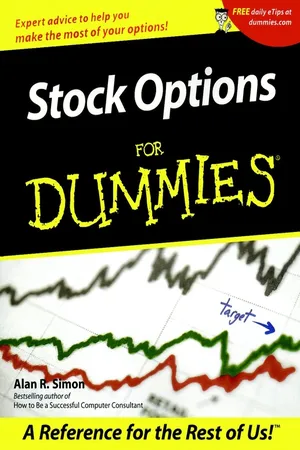Business
Business Takeover
A business takeover refers to the acquisition of one company by another, typically through the purchase of a majority stake in the target company's shares. This can be achieved through various means, such as a merger, acquisition, or hostile takeover. Business takeovers can result in significant changes in company ownership, management, and strategic direction.
Written by Perlego with AI-assistance
Related key terms
1 of 5
4 Key excerpts on "Business Takeover"
- eBook - ePub
- Andrew Burgess(Author)
- 2017(Publication Date)
- Routledge(Publisher)
One method by which a takeover may be effected is by way of what is called ‘a proxy contest’. Basically, this method involves a shareholder, or group of shareholders, soliciting the proxies of other shareholders in order to amass control over sufficient votes to change the board of directors and, accordingly, the management of the company. Another method which may be employed to secure a takeover is by an amalgamation of two or more amalgamating companies which continue as one amalgamated company under the control of new management. Yet another method of effecting a takeover is by the purchase by the acquirer of all the assets of the target company. A final method by which a takeover may be effected is by the acquisition of sufficient shares of the target company by the acquirer to allow the acquirer to exercise voting control over the target company. Acquisition of shares of the target company may be by way of the purchase of a controlling block of shares or significant blocks which together make up a controlling block, or, may be by purchasing the shares through a general offer to all shareholders to buy shares.Takeover bids
The last method of effecting a takeover described in the foregoing paragraph is a takeover by a takeover bid. In it, a general offer is made by the acquirer/bidder, called the offeror, to all or most shareholders, called the offerees, to purchase shares of their company, called the offeree company or target company, with the objective of obtaining sufficient shares to control the offeree company. A takeover bid may take the form of a ‘share exchange offer’, a ‘cash offer’ or a combination of a share exchange offer and a cash offer. In a share exchange offer, the offeror offers to offerees shares of the offeror or a related company in exchange for the offerees’ shares in the offeree company. In a cash offer, the offeror offers to pay cash to offerees for their shares in the offeree company. The offeror may also offer the offerees a combination of cash and share offering in exchange for their shares in the offeree company. - eBook - ePub
Mergers and Acquisitions Basics
Negotiation and Deal Structuring
- Donald DePamphilis(Author)
- 2010(Publication Date)
- Academic Press(Publisher)
InBev's takeover tactics and Anheuser-Busch's defenses illustrate the types of takeover tactics and defenses that can characterize mergers and acquisitions—and that often capture newspaper headlines while negotiations unfold behind the scene. Buyers and sellers alike may use aggressive tactics to extract concessions from the other party.Thus far, you have learned about the process of negotiation that typically goes unseen by the public. Here, in this final chapter, you will learn about the various takeover tactics and defenses and how they impact the negotiating process. Remember, whether a transaction is initially hostile or friendly, its resolution ultimately comes through negotiation. 11 See DePamphilis (2009) , Chapter 3 , for a more detailed discussion of alternative takeover strategies and defenses.Alternative Takeover Tactics in the Corporate Takeover MarketTakeovers may be classified as friendly or hostile. In a friendly takeover, a negotiated settlement is possible without the acquirer resorting to aggressive tactics. These tactics may include a bear hug, in which the acquirer mails a letter that includes an acquisition proposal to a target company's board of directors, without prior warning and demanding a rapid decision; a proxy contest, which is an attempt by dissident shareholders to obtain representation on the board of directors or change a firm's bylaws by obtaining the right to vote on behalf of other shareholders; or a hostile tender offer, in which the acquirer bypasses the target's board and management and goes directly to the target's shareholders with an offer to purchase their shares. Unlike a merger in which the minority must agree to the terms of the agreement negotiated by the board after the majority of the firm's shareholders (i.e., 50.1 percent or more) approve the proposal, the tender offer specifically allows for minority shareholders to approve or deny the merger.Following the tender offer, the target firm becomes a partially owned subsidiary of the acquiring company—under terms that may be imposed on the minority. This is achieved by the parent firm merging the partially owned subsidiary that resulted from the failure of the tender offer to obtain all of the target firm's shares into a new, wholly owned subsidiary. Alternatively, the acquirer may decide not to acquire 100 percent of the target's stock—and the minority becomes subject to a freeze-out or squeeze-out in which the remaining shareholders depend on the decisions made by the majority shareholders. - eBook - ePub
- Alan R. Simon(Author)
- 2010(Publication Date)
- For Dummies(Publisher)
You may find yourself in one of several kinds of change of control situations, such as an acquisition, a merger, or a divestiture. The following sections discuss each in detail. Some deals involve a sale for cash, while others use stock as the financial medium of exchange, as the following sections illustrate.Acquisitions
An acquisition is, in most cases, a takeover. One company — the acquirer — is purchasing all of (or at least some of) the company assets of the acquiree, including buildings, equipment, future revenue that is already contracted, and employees. (Yes, in the acquisition world, you and your fellow employees are assets that are being sold by your company to another company.) Almost always, the acquiring company pays a premium on top of the current market value of the acquired company to be able to secure the deal.If the acquired company is publicly held, the premium is usually some price above its current stock price. (For example, the acquired company is trading at $20.00 per share the day before the acquisition occurs, and the acquisition price may be $30.00 per share.) However, if the acquired company is privately held, arriving at that company’s value — and the premium that the acquirer will pay — is a job for the financial pros with MBAs from an Ivy League school or other top-notch business program who work on Wall Street, drive fancy cars, and all that. The Mergers and Acquisitions business from both sides — advising acquirers and target acquirees — can be very lucrative because of the skill and expertise that is required to try to ensure that the acquired company’s owners are getting a fair deal and, at the same time, the acquirer isn’t grossly overpaying.In many cases, the top-level management team of the acquired company bails out following the completion of the deal, courtesy of the golden parachute - eBook - ePub
The Art of Capital Restructuring
Creating Shareholder Value through Mergers and Acquisitions
- H. Kent Baker, Halil Kiymaz, H. Kent Baker, Halil Kiymaz(Authors)
- 2011(Publication Date)
- Wiley(Publisher)
Takeover strategies are shaped by the acquirer's objectives, the expected response from the target, and the external macroeconomic environment. Characteristics of the acquirer and the target, such as their capital structure and shareholding, affect the route that the acquirer takes. At the same time, external conditions, such as government regulation, taxes, and merger and acquisition (M&A) waves, also leave their mark on takeover strategies. Additionally, other stylized features of the takeover process have a bearing on the acquirer's strategies. These include agency problems in the acquiring and target firms, problems of the “winner's curse,” and information and signaling issues. Takeovers are also often characterized as specialized auctions with one buyer (acquirer) and one seller (target), where the acquirer interacts with target shareholders or target management. To the extent that auction theory accurately models takeovers, it can provide useful insights into various aspects of the takeover process including acquisition strategies and their impact on shareholder and social welfare to firm insiders and regulators (Dasgupta and Hansen, 2007). On the whole, takeover strategies are intertwined with the broader theories of M&As as reviewed in more detail below.Agency Problems, Free Riding, and TakeoversThe separation of ownership and control in large firms causes agency problems (Jensen and Meckling, 1976; Grossman and Hart, 1983). If managers (agents) do not own a majority share in the firm, they are likely to exert suboptimal effort and consume perquisites. This is presumably because managers can pass on the costs to the majority shareholders (principals). Such problems are exacerbated due to the principal's inability to write exhaustive and enforceable contracts that would force the agent to maximize shareholder value (Hart and Moore, 1988, 1999). Further, large firms are subject to the problem of free riding among shareholders. An individual owner who is willing to monitor agents has to bear the full cost of monitoring, but all owners share the rewards. This causes shirking on the part of shareholders (Holmstrom, 1979, 1982). Both acquirer and target firms are subject to efficiency losses due to agency and free-rider problems.
Index pages curate the most relevant extracts from our library of academic textbooks. They’ve been created using an in-house natural language model (NLM), each adding context and meaning to key research topics.



